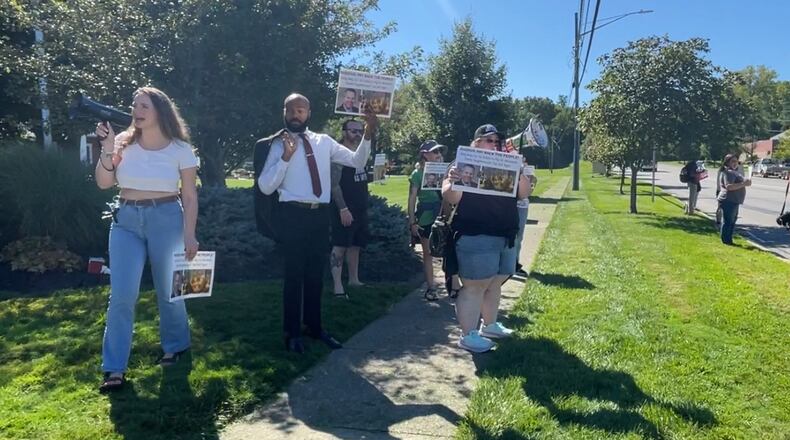“It seems like some really interesting deals have been made,” said Blair, citing the 10-year, 75% of the property tax City Council approved in 2021 as Koch Foods embarked on a $220 million expansion. “So it’s a savings (for Koch Foods) of about $125,000 a year for a decade, so it comes out to about $1.25 million a year for a handout to a billionaire to build a slaughterhouse.”
The Fairfield operations, however, is not a slaughterhouse and actually is in the final stage in a process that produces meat-based products, most of which are chicken products. The Port Union Road food processing plant is essentially a kitchen as they marinate and cook the chicken, and other types of protein, then package them. They also have a small production of meatless products.
The incentive offered to Koch Foods, which is not uncommon for cities to offer substantial business expansion projects, helped the business construct and open in February 2023 it’s new building on an 18-acre parcel. Prior to the construction project, it was an empty land that generated about $20,000 in annual property taxes. Even with the abated taxes, the company is paying an estimated $115,000 a year in property taxes, which doesn’t include a required payment to Fairfield City Schools and Butler Tech to make up for decrease of taxes that would had been due to those entities.
The protesters really wanted Fairfield Mayor Mitch Rhodus to answer their questions, claiming he had “blood on his hands” by the city’s approval of this tax incentive. But Rhodus didn’t vote on nor did he negotiate the abatement deal because he wasn’t in office, nor did he serve in any capacity. He was elected in November 2021 and took office in January 2022.
But any groundwork on tax incentives or water and sewer projects would be laid by city staff, but would require Fairfield City Council approval. And barring a tie vote among the seven voting members of City Council, the mayor does not have a vote.
Blair and other protesters also voiced concerns about Koch Foods’ safety and employment standards, which the Fairfield plant was cited for worker safety issues in 2020 and in recent years. There have been more prominent safety issues in other communities of other states, according to media reports. The company has had fines levied against it following investigations of worker safety.
In August 2019, a Mississippi plant was raided by federal authorities, along with other businesses, arresting undocumented workers. The Fairfield plant also experienced a raid due to undocumented workers, but that was in August 2007, and it has not had any known employment issues related to undocumented workers since that time.
The protesters, who ended the protest inside the Fairfield City Building, chanted as they left, “We’ll be back. You don’t know when, but we’ll be back.”
Fairfield City Council’s next business meeting is scheduled for 7 p.m. Sept. 11 at the Fairfield Municipal Building, 5350 Pleasant Ave.
About the Author

